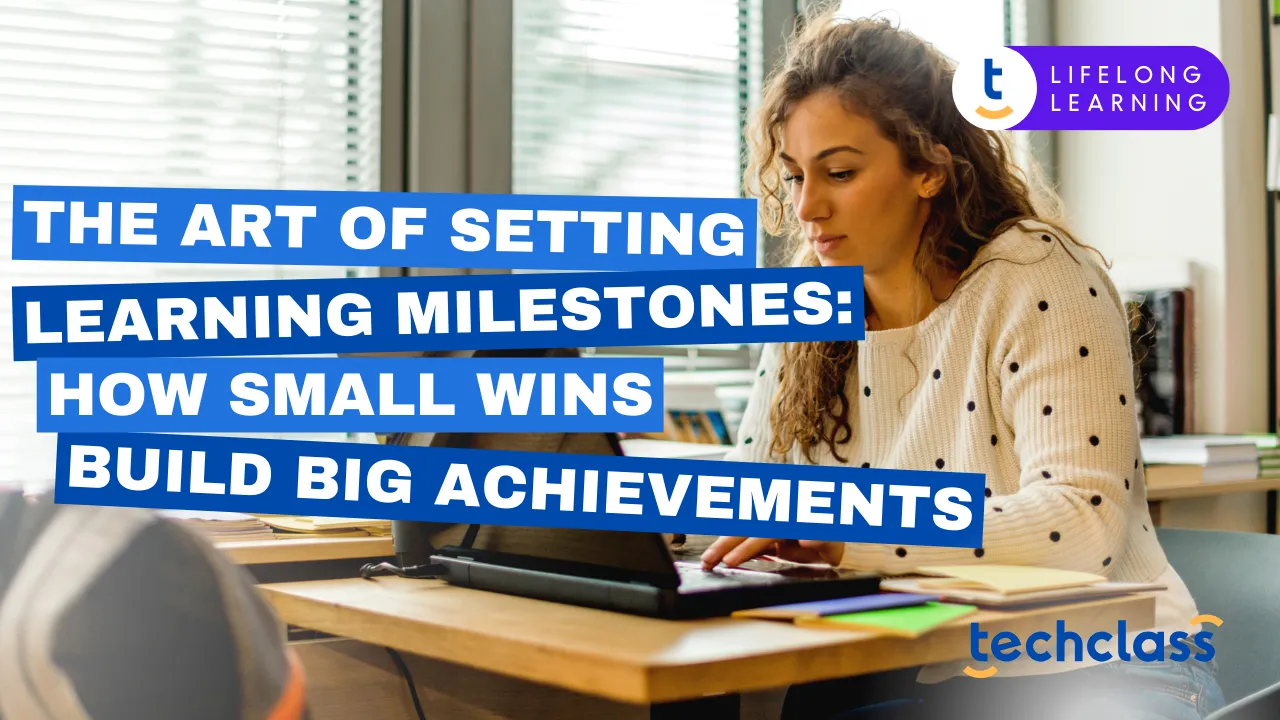
In the pursuit of knowledge and personal development, success rarely comes from a single leap, it’s the accumulation of small, intentional steps that leads to transformative outcomes. This is the essence of setting learning milestones. Whether you’re a student, professional, or lifelong learner, mastering the art of recognizing and celebrating small wins is crucial for staying motivated and achieving long-term goals.
Learning milestones act as waypoints on your educational journey. Like a project roadmap, they help you visualize progress, adjust your pace, and maintain motivation. Rather than focusing solely on distant, daunting goals like mastering a language or earning a degree, breaking these ambitions into smaller, actionable tasks, such as completing a daily lesson or understanding a key concept, makes progress visible and rewarding.
From a psychological perspective, small wins activate the brain’s reward system by releasing dopamine. This chemical reinforcement boosts focus, fuels motivation, and enhances emotional resilience. When you achieve a milestone, no matter how small, your brain registers it as success, making you more likely to repeat the effort.
Instead of saying “I’ll finish the entire module this week,” reframe your goal into manageable steps like “I’ll complete two subtopics today.” This approach prevents overwhelm and helps build consistent momentum. Breaking complex tasks into smaller units transforms abstract goals into practical actions, reducing procrastination and increasing productivity.
Time-blocking your learning activities can significantly boost your efficiency. Allocate specific times of the day for learning, reviewing, and practice. This not only makes your schedule predictable but also builds a habit around learning. Small wins, like sticking to your planned schedule for a week, become confidence boosters.
One of the most underrated small wins in learning is reviewing content within 24 hours. Revisiting notes soon after a lesson helps move information from short-term to long-term memory. Each timely review you complete is a win that improves retention and reduces future study time.
Digital tools like Trello, Todoist, or even a simple journal can help track progress. Every time you check off a task, you're not just completing an item, you're reinforcing a success loop. These micro-accomplishments serve as reminders that progress is happening, even when major milestones feel far off.
Engaging with peers, mentors, or instructors adds depth to your learning experience. Even something as simple as asking a question or participating in a discussion can be celebrated as a small win. These interactions provide diverse perspectives and reinforce your engagement.
Finished reading a chapter? Solved a tricky problem? Recognize it! A reward could be as simple as a five-minute break, your favorite snack, or sharing your progress with a friend. These celebrations create a feedback loop that energizes your next effort.
Researchers found that progress in meaningful work is a key driver of motivation. The “Progress Principle” shows that even small steps forward boost well-being and engagement.
Daily accomplishments like completing a task, reaching a weekly goal, or hitting a course milestone can be celebrated through simple rewards, hobbies, or sharing progress with others. These small celebrations reinforce habits, build momentum, and help you focus on progress, not perfection.
Celebrating milestones doesn’t mean ignoring failures. In fact, small wins often emerge from overcoming small setbacks. Embracing a growth mindset means viewing challenges as opportunities to adapt and improve. Reflection after a tough day, asking what went well and what can improve, becomes a form of milestone in itself.
The act of recovering from a missed study session or a poor test score by setting and achieving a new micro-goal re-establishes momentum and strengthens resilience.
Perfectionism often paralyzes progress by creating unrealistic standards that delay action. When you're constantly waiting for ideal conditions or flawless results, you risk missing valuable opportunities for growth. Instead of striving for perfection, focus on taking imperfect action. Progress, no matter how small, builds momentum.
Shifting your mindset helps. Rather than thinking, “It’s not good enough yet,” reframe it as, “This is a step forward.” Instead of saying, “I’ll wait till I have time,” try, “I’ll use the 15 minutes I have now.” These small shifts encourage consistent effort, which is what truly leads to mastery over time.
When goals feel too distant, motivation wanes. Anchoring progress in small, tangible milestones ensures that every step counts and burnout stays at bay.
In the context of lifelong learning, setting clear milestones and celebrating small wins is essential for sustaining growth over time. Unlike formal education with defined endpoints, lifelong learning is a continuous journey that requires self-direction, discipline, and internal motivation. Small wins provide the structure and encouragement needed to stay committed, even when there are no external deadlines or grades.
Each minor achievement, whether it's reading a chapter, completing a course module, or applying a new skill at work, reinforces your progress and builds confidence. Over time, these incremental steps compound into meaningful expertise. By treating each step as a milestone and taking time to acknowledge it, lifelong learners can maintain enthusiasm, overcome setbacks, and build lasting habits that support personal and professional development throughout their lives.
Let’s consider the cumulative power of consistent small wins:
As James Clear, author of Atomic Habits, wisely noted:
“Success is the product of daily habits, not once-in-a-lifetime transformations.”
Small wins, repeated consistently, lay the foundation for exponential growth.
Just like a professional project plan, your learning journey should include:
Platforms like TechClass use these strategies effectively by offering interactive lessons, and certifications as visible milestones, all reinforcing the principle that structured progress breeds success.
Learning doesn’t happen overnight, but the journey becomes lighter, and more enjoyable, when milestones illuminate your path. They aren’t just markers of progress; they’re affirmations of your effort, discipline, and growth. Whether you're mastering calculus, preparing for a certification, or learning a new skill, remember this: it’s not about how fast you reach the summit, it’s about the steps you take each day that get you there.
So set your goals, break them down, track your wins, celebrate often, and keep climbing.
While the principles of setting milestones are essential for personal growth, implementing these strategies across an entire organization requires a scalable infrastructure. Manually tracking every small win or designing personalized paths for every employee can quickly become an administrative burden, often leading to inconsistent engagement and lost momentum.
TechClass simplifies this process by transforming abstract goals into structured, automated Learning Paths. Through built-in gamification features like badges and real-time progress tracking, the platform provides the immediate reinforcement needed to turn daily habits into long-term expertise. By centralizing these milestones, TechClass allows you to visualize progress and celebrate achievements at scale, ensuring that every step forward contributes to a culture of continuous improvement and organizational success.


.webp)